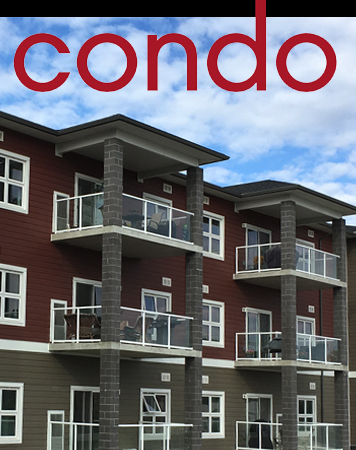By Lisa Johnson Mandell
What is a condo? If you ask most people to explain what a condo is, they’ll tell you, “It’s like an apartment, but you own it.” Or, “It’s like a home, but without a yard.” Both of these descriptions are mostly true, but there’s a lot more to the condo meaning and the condos vs. apartments debate, especially if you’re trying to decide where you should live.
What is a condo?
A condo (short for “condominium”) is a private residence owned by an individual or family in a building or community with multiple units. Although condos are usually part of a larger building, “detached condominiums” also exist. What all condos have in common is that they share common areas — such as yards, garages, rec rooms, or gyms — with other units that the condo owners don’t have to maintain themselves, making home upkeep that much easier.
For this convenience, condo owners pay fees to a condo board — typically made up of elected condo owners — who handle the hiring of landscapers, pool cleaners, and other repairmen for anything that must be fixed, from faulty elevators to gopher infestations in the common yard. (Leaky pipes and plumbing and/or roof repairs fall into more of a gray area, but generally if it’s outside the walls of your unit, it’s the board’s responsibility to fix.)
Should you buy a condo? Here’s how to decide
You can see why condos would be ideal for people who want to own a piece of real estate but don’t want to worry about yardwork and maintenance. The condos vs. apartments conundrum is often an easy choice for retirees, young adults without kids, or anyone who would like to own property in more densely populated areas where detached single-family homes may cost too much.
And the advantage of buying a condo over renting an apartment? One, condos tend to be better built and maintained than rentals. Plus, condos enable homeowners to gain equity in their property over time — so why not invest your money in a home rather than throw it away on rent?
Depending on the area, the condo would appreciate during the length of residency. Whereas in a rental, there is no opportunity for a return on investment.
Condos vs. apartments: the deciding factor
On the other hand, condos are not a great idea for fiercely independent people who like their own privacy and space, and don’t want anyone telling them what they can and can’t do with it. That’s because in addition to collecting fees, a condo board also enforces rules and regulations that owners agree to abide by when they purchase their condo. The board can regulate everything from the size and number of pets you’re allowed to the number and ages of the people living in your unit. Retirement condo communities, for example, can legally require that all long-term residents be over the age of 55.
So if you’re looking into buying a condo, make sure to study up on the rules before you commit to your purchase.
— realtor.com



